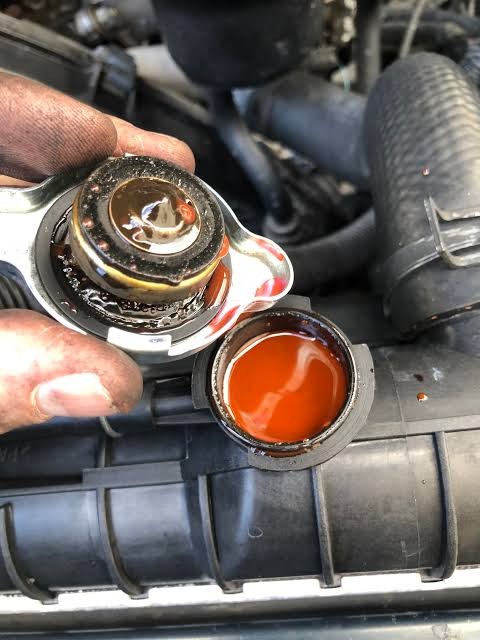Learn why coolant mixing with oil in your engine is a serious issue. Discover causes like blown head gaskets or cracked blocks and the importance of prompt diagnosis and repair.
If you've noticed a milky substance on your engine oil dipstick, it's crucial to address it promptly. This article delves into the causes of coolant mixing with oil in your engine and offers insights on resolving this issue effectively.
Common Cause:
Blown Head Gasket
The most frequent culprit is a blown head gasket, which fails to seal the combustion chamber and allows coolant to leak into the oil passages. The resulting milky residue on the dipstick indicates the presence of coolant mixed with oil.
Cracked Engine Block
A cracked engine block is a more severe cause of coolant and oil mixing. When the block develops cracks, coolant can leak into the oil passages, leading to the unwanted mixture. In such cases, extensive repairs or engine replacement may be necessary.
Warped Cylinder Head
A warped cylinder head can also result in coolant mixing with oil. This occurs when the head gasket fails due to the head's deformation, allowing coolant to infiltrate the oil passages.
Other Potential Causes
While less common, a cracked cylinder head or a damaged engine oil cooler can also cause coolant and oil to mix. A cracked cylinder head allows coolant to leak into the oil passages, while a damaged oil cooler permits oil and coolant to intermingle.
Prompt Diagnosis and Repair
If you suspect coolant mixing with oil, it's crucial to have your engine diagnosed and repaired promptly to prevent further damage and potential engine failure. A qualified mechanic can conduct a coolant pressure test and cylinder compression test to pinpoint the underlying cause.
Repairing a Blown Head Gasket
In most cases, a blown head gasket can be repaired by replacing the faulty gasket. However, if a cracked engine block or cylinder head is discovered, more extensive repairs or engine replacement may be required.
Conclusion: Prioritize Timely Resolution
Coolant mixing with oil is a serious issue that necessitates immediate attention. Addressing the problem promptly, whether it's a blown head gasket or a cracked engine block, is crucial to prevent further damage. Trust a qualified mechanic to diagnose and repair your engine, ensuring its optimal performance and longevity.

Comments (0)
Please login to join the discussion
Be the first to comment on this article!
Share your thoughts and start the discussion